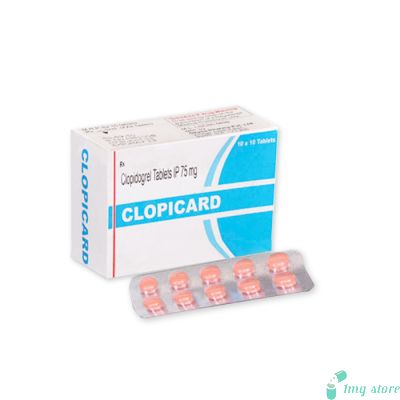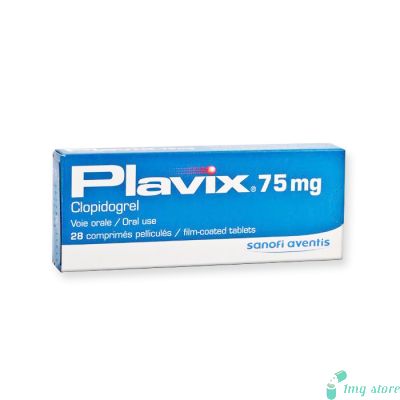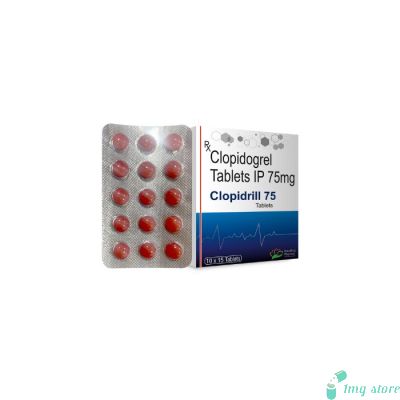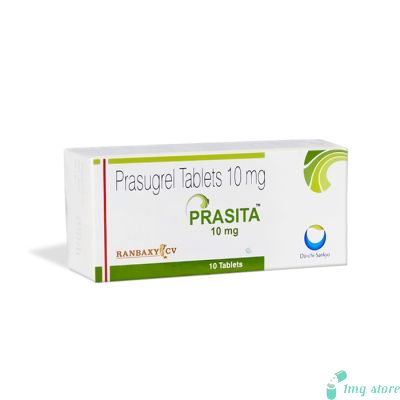Xarelto Tablet (Rivaroxaban)
Rivaroxaban, commonly marketed under the brand name Xarelto, is a medication used for the prevention and treatment of blood clots.
Xarelto Tablet (Rivaroxaban): For Blood Clots
Rivaroxaban, commonly marketed under the brand name Xarelto, is a medication used for the prevention and treatment of Blood Clots. It belongs to a class of drugs known as direct oral anticoagulants (DOACs) or novel oral anticoagulants (NOACs). Rivaroxaban works by inhibiting a specific factor in the blood clotting cascade called factor Xa. This prevents the formation of blood clots and reduces the risk of thromboembolic events, such as deep vein thrombosis (DVT), pulmonary embolism (PE), stroke, and atrial fibrillation (AF) in certain patients.
Rivaroxaban Dose Information:
The dosage of rivaroxaban can vary depending on the specific condition being treated and individual patient factors. It is important to follow the prescribed dosage and instructions provided by your healthcare professional. The usual recommended dosage for different indications includes:
Prevention of Deep Vein Thrombosis (DVT) and Pulmonary Embolism (PE):
Knee Replacement Surgery: The typical dose is 10 mg once daily, starting 6-10 hours after surgery and continuing for 12 days.
Hip Replacement Surgery: The typical dose is 10 mg once daily, starting 6-10 hours after surgery and continuing for 35 days.
Acute Medically Ill Patients: The typical dose is 10 mg once daily, starting 6-10 hours after hospital admission and continuing for 31 to 39 days, depending on the risk factors.
Treatment and Secondary Prevention of DVT and PE:
The typical dose is 15 mg twice daily for the first 21 days, followed by 20 mg once daily for continued treatment and prevention of recurrence.
Prevention of Stroke and Systemic Embolism in Nonvalvular Atrial Fibrillation:
The typical dose is 20 mg once daily with the evening meal.
Prevention of Recurrent DVT and PE:
The typical dose is 10 mg once daily.
It is important to note that the dosage may be adjusted by your healthcare professional based on your kidney function, age, body weight, and other individual factors. Do not change the dosage or stop taking rivaroxaban without consulting your doctor.
What is Rivaroxaban?
Rivaroxaban is a widely prescribed anticoagulant with several advantages over traditional anticoagulants, such as warfarin. It offers convenient once-daily dosing without the need for routine blood monitoring or frequent dose adjustments. However, like any medication, rivaroxaban carries certain risks, including bleeding. It is important to discuss the benefits and potential side effects of rivaroxaban with your healthcare professional before starting treatment.
When taking Rivaroxaban, it is important to be aware of certain precautions:
Bleeding Risk: Rivaroxaban drug is an anticoagulant, which means it can increase the risk of bleeding. It is important to promptly report any signs of bleeding to your healthcare professional, such as unusual bruising, prolonged bleeding from cuts, nosebleeds, bleeding gums, or blood in the urine or stool.
Spinal or Epidural Blood Clots: If you are taking rivaroxaban and are scheduled to undergo spinal or epidural anesthesia or a spinal puncture, inform your healthcare professional beforehand. The use of rivaroxaban in these procedures may increase the risk of developing blood clots in or around the spine, which can lead to paralysis.
Liver or Kidney Problems: Inform your doctor if you have any liver or kidney problems, as these conditions may affect the dosage and use of rivaroxaban. Adjustments in the dosage may be necessary to ensure safe and effective treatment.
Pregnancy and Breastfeeding: Rivaroxaban (Xarelto) may not be suitable during pregnancy, especially in the first trimester, as it may harm the unborn baby. It is important to discuss the potential risks and benefits with your healthcare professional. Additionally, it is not known whether rivaroxaban passes into breast milk, so it is advisable to consult with your doctor before breastfeeding while taking this medication.
Surgery or Dental Procedures: If you are scheduled for any surgery or dental procedures, inform your healthcare professional that you are taking rivaroxaban. In some cases, rivaroxaban may need to be temporarily discontinued prior to the procedure to reduce the risk of excessive bleeding.
Rivaroxaban is primarily used for various conditions associated with blood clot formation.
Prevention and Treatment of Deep Vein Thrombosis (DVT) and Pulmonary Embolism (PE): Rivaroxaban is prescribed to reduce the risk of DVT and PE in patients undergoing knee or hip replacement surgery. It is also used for the treatment of DVT and PE, as well as to prevent their recurrence.
Prevention of Stroke and Systemic Embolism in Nonvalvular Atrial Fibrillation (NVAF): Rivaroxaban is indicated for patients with NVAF, a common Heart rhythm disorder, to lower the risk of stroke and systemic embolism.
Prevention of Recurrent DVT and PE: Rivaroxaban (Xarelto) may be prescribed for long-term use to prevent the recurrence of DVT and PE in patients who have previously experienced these conditions.
Acute Medically Ill Patients: Rivaroxaban is used to prevent blood clot formation in patients who are acutely ill due to medical conditions, such as heart failure, respiratory failure, or severe infection, and who are at an increased risk of thromboembolic events.
Like all medications, rivaroxaban can cause secondary effects.
Bleeding: This is the most significant side effect of rivaroxaban (Xarelto). It can manifest as easy bruising, prolonged bleeding from cuts, nosebleeds, bleeding gums, or blood in urine or stool. Severe bleeding, such as gastrointestinal bleeding or intracranial hemorrhage, though rare, can occur and requires immediate medical attention.
Dizziness or Weakness: Some individuals may experience dizziness or weakness while taking rivaroxaban. If these symptoms are severe or persistent, it is important to consult with your healthcare professional.
Headache: Headaches may occur as a side effect of rivaroxaban. If headaches are severe or persistent, it is advisable to seek medical advice.
Gastrointestinal Disturbances: Rivaroxaban can cause gastrointestinal symptoms such as nausea, vomiting, and abdominal pain. If these symptoms are bothersome or persistent, consult with your doctor.
Skin Reactions: In rare cases, rivaroxaban (Xarelto) may cause allergic skin reactions, such as rash, itching, or hives. If you experience any of these symptoms, discontinue the medication and seek medical attention.
Liver Problems: Although rare, rivaroxaban has been associated with liver problems. Symptoms can include yellowing of the skin or eyes (jaundice), dark urine, abdominal pain, or persistent fatigue. If you notice any of these symptoms, contact your healthcare professional.
Frequently Asked Concerns About Xarelto Tablet (Rivaroxaban)
Can I consume alcohol while taking Rivaroxaban?
It is generally recommended to avoid excessive alcohol consumption while on rivaroxaban. Alcohol can increase the risk of bleeding and may interact with the medication. It is best to consult with your healthcare professional to determine if moderate alcohol consumption is safe for you.
What should I do if I miss a dose of rRivaroxaban?
If you miss a dose, take it as soon as you remember on the same day. If it is already the next day, skip the missed dose and resume your regular dosing schedule. Do not take a double dose to make up for a missed one. Contact your healthcare professional for further guidance if you are unsure about what to do.
Can Rivaroxaban (Xarelto) be safely used in elderly patients?
Rivaroxaban can be used in elderly patients, but caution should be exercised. The risk of bleeding may be higher in this population, and renal function should be closely monitored. Your healthcare professional will consider your overall health, kidney function, and other factors to determine the appropriate dosage and frequency for you.
Is it safe to undergo dental procedures while taking Rivaroxaban (Xarelto)?
Dental procedures, such as tooth extraction, may carry a risk of bleeding. It is important to inform your dentist that you are taking rivaroxaban. In some cases, your doctor may advise temporary discontinuation of the medication before the procedure to reduce the risk of bleeding. Always follow your healthcare professional's instructions and inform all medical practitioners involved in your care about your anticoagulant use.
Can I switch from another anticoagulant to Rivaroxaban?
Switching from one anticoagulant to another should be done under the guidance of your healthcare professional. The transition may require specific dosing adjustments and careful monitoring to ensure a smooth transition and maintain appropriate anticoagulation levels. Do not stop or switch medications without consulting your doctor first. They will provide personalized advice based on your medical history and the specific anticoagulant being switched to rivaroxaban.
Some notable drug interactions with Rivaroxaban include:
Rivaroxaban can interact with other medications, potentially affecting their effectiveness or increasing the risk of side effects. It is crucial to inform your healthcare professional about all the medications, including prescription, over-the-counter drugs, and herbal supplements, that you are taking.
Anticoagulants and Antiplatelet Drugs: Concurrent use of other anticoagulants (e.g., warfarin, heparin) or antiplatelet drugs (e.g., aspirin, clopidogrel) may increase the risk of bleeding. Your doctor will carefully assess the risks and benefits before prescribing rivaroxaban (Xarelto) alongside these medications.
Nonsteroidal Anti-Inflammatory Drugs (NSAIDs): NSAIDs, such as ibuprofen or naproxen, may increase the risk of bleeding when combined with rivaroxaban. It is advisable to use caution and inform your healthcare professional if you need to take NSAIDs regularly.
Certain Antifungal and Antibiotic Medications: Some antifungal medications (e.g., ketoconazole, itraconazole) and certain antibiotics (e.g., clarithromycin, erythromycin) may increase rivaroxaban levels in the blood, potentially leading to an increased risk of bleeding. Your doctor may need to adjust the rivaroxaban dosage if you are prescribed these medications.
St. John's Wort: St. John's Wort, an herbal supplement used for depression, can lower rivaroxaban levels in the blood, reducing its effectiveness. It is important to inform your healthcare professional if you are using St. John's Wort or any other herbal supplements.
These are not exhaustive lists of drug interactions, and it is crucial to consult with your healthcare professional for comprehensive information on potential interactions with rivaroxaban.
| Manufacturer | : | Bayer Pharma, India |
| Equivalent Brand | : | Xarelto |
| Generic Search | : | Rivaroxaban |














